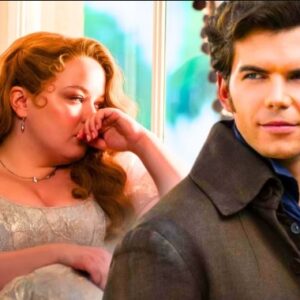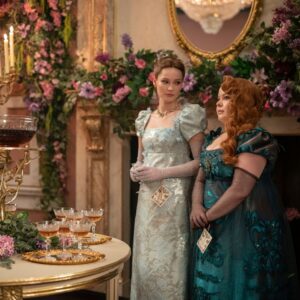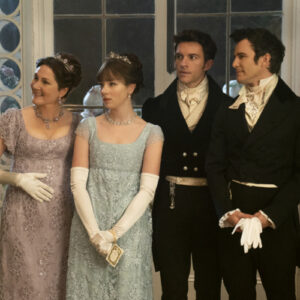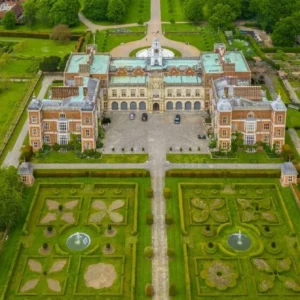It’s a beautiful and respected tradition.
This week’s episode of Shōgun, “The Abyss of Life,” is a shocking one. Filled with death, distrust, and politicking, it finally offers some insight into what Lord Yoshii Toranaga (Hiroyuki Sanada) intends to do about his surrender, taking things to surprising extremes. However, there’s also room for some beauty, too. In one of the best scenes of the whole series, Toda “Buntaro” Hirokatsu (Shinnosuke Abe) prepares tea for Lady Mariko (Anna Sawai) in a typical Japanese tea ceremony. It’s very unlike his character but works perfectly in the context of the episode. This tradition has been depicted countless times in pop culture, but Shōgun portrays it in a very special and emotional light.
Buntaro and Mariko’s Tea Ceremony Happens at a Crucial Moment
In “The Abyss of Life,” Toranaga travels to Edo to mourn his son, Nagakado (Yuki Kura). There, the whole controversy around his decision to surrender to the Council of Regents and face his sentence in Osaka continues. After a meeting with Padre Martin Alvito (Tommy Bastow), Toranaga’s general, Toda Hiromatsu (Tokuma Nishioka), is briefly convinced that Toranaga has a secret plan and states as such to Buntaro and Kashigi Yabushige (Tadanobu Asano). Shortly before this meeting, Buntaro cordially tells Mariko he “would like to prepare tea for his wife,” and this is the context in which their tea ceremony takes place.
This time, though, Mariko refuses. She says that, even after years of marriage, Buntaro still fails to see that what he has denied her for years isn’t death, but “a life beyond his reach,” and that she would rather “live a thousand years” than die with him like this. She politely bows before her husband and exits the room. Buntaro is left behind alone and cries in the face of denial and frustration.
‘Shōgun’ Carefully Recreates the Tea Ceremony With Attention to Detail
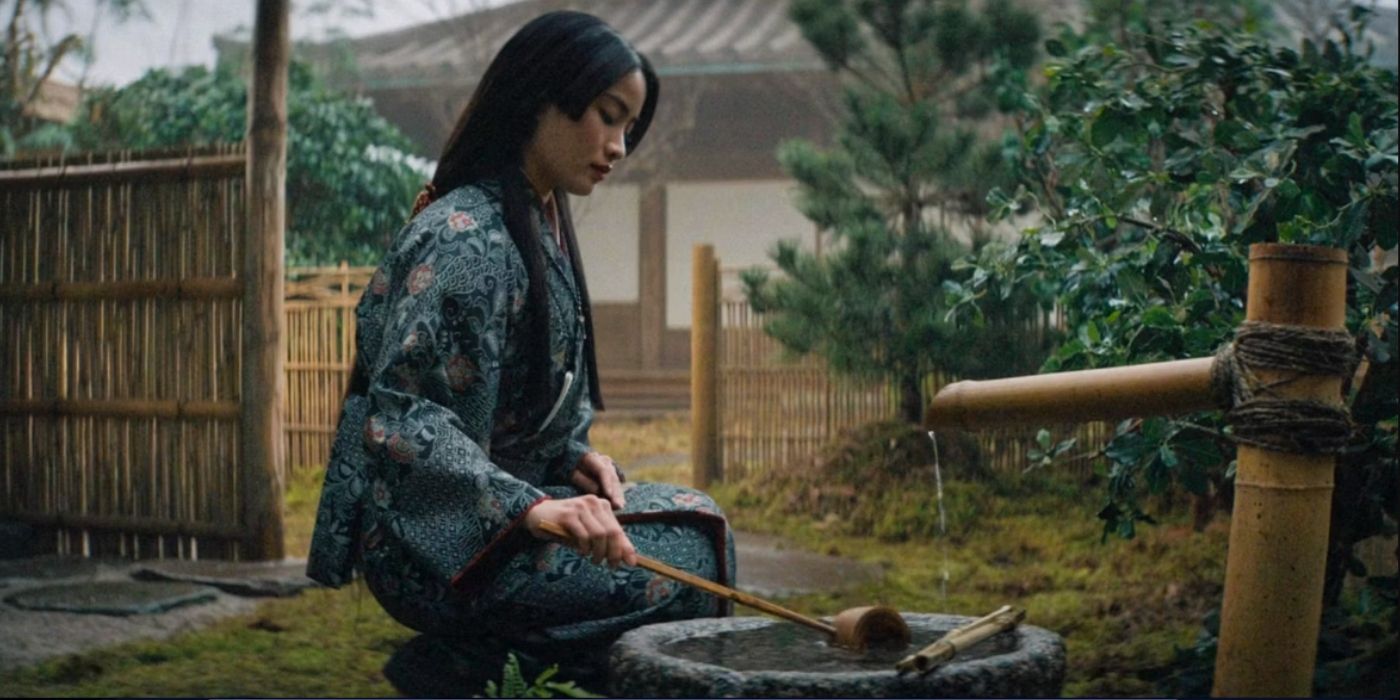
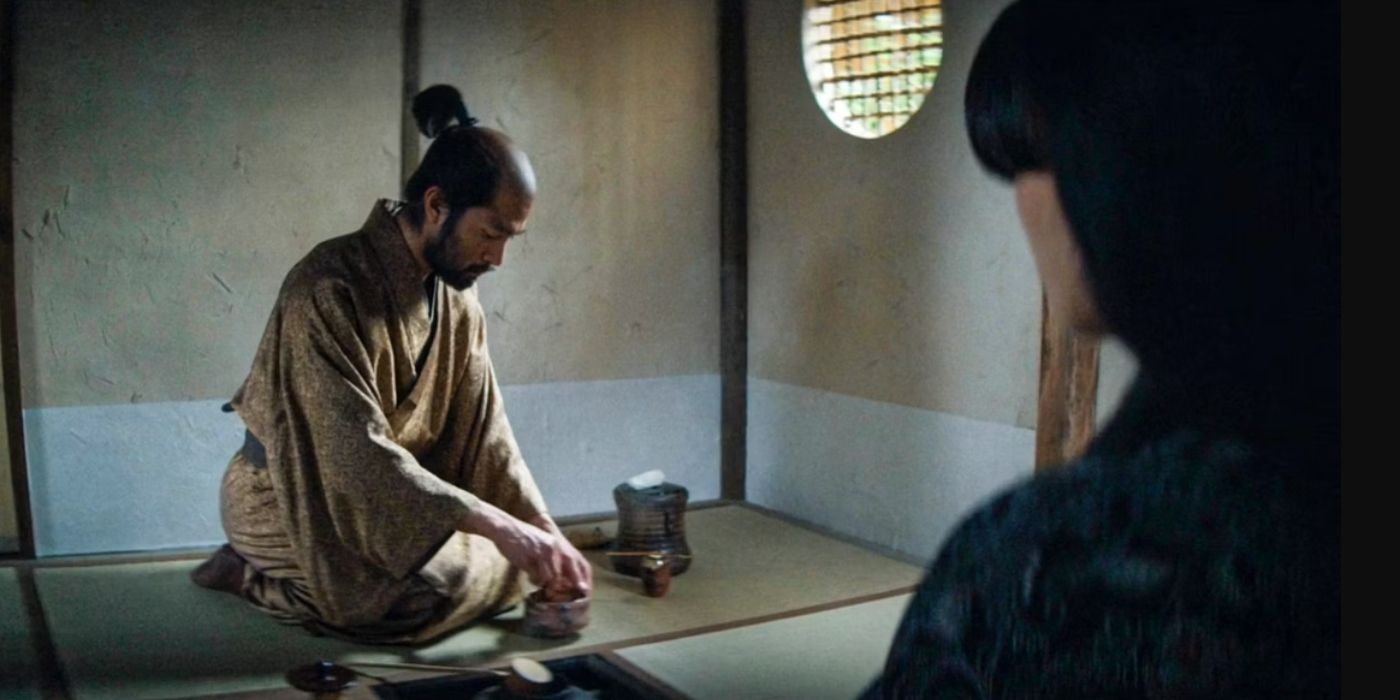
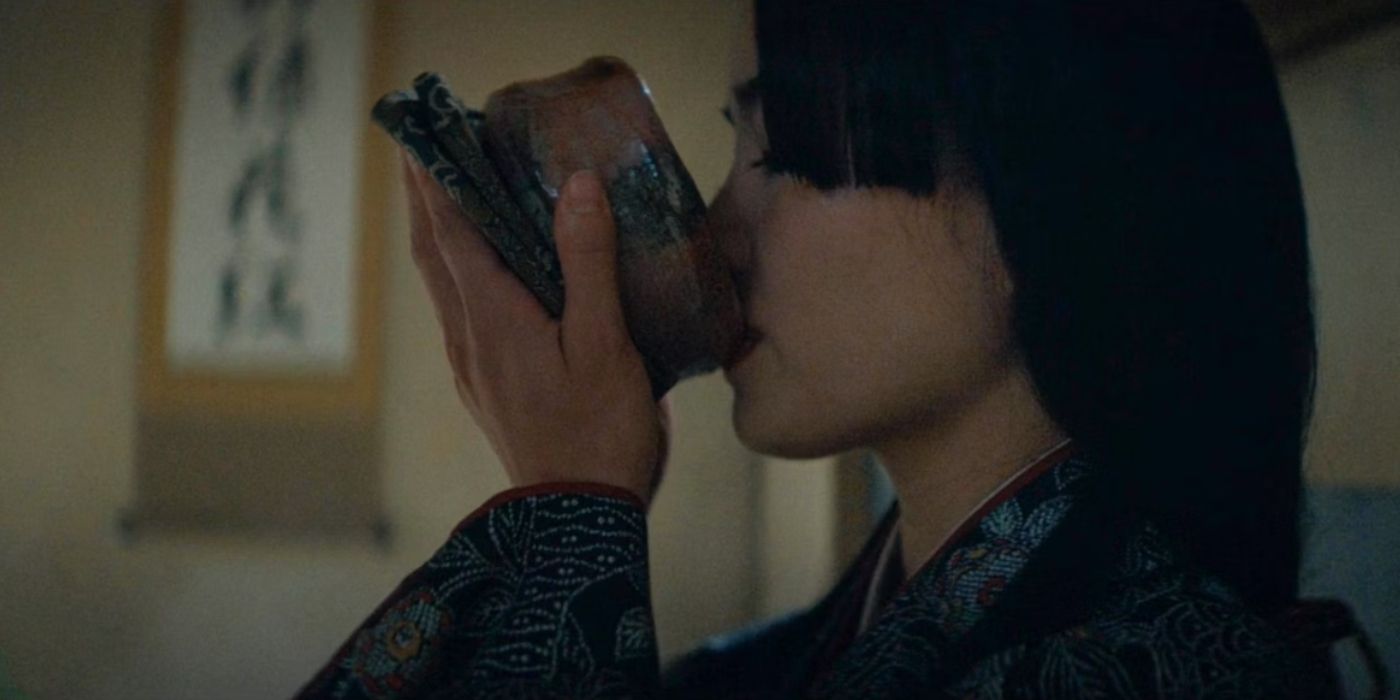
The episode’s tea ceremony is a beautiful Japanese tradition that has stood for centuries, also known as chanoyu. It can involve either two individuals or a small group of people, and it’s meant to strengthen the bond between the host (who is preparing the tea) and their guests (who are drinking it). This tradition began when Japanese Buddhist priests brought the custom of drinking green tea from China in the 12th century and evolved until the mid-16th century, when it took the form it has today.
In Shōgun, it’s clear the ceremony is quite an intimate affair. It’s the first time Buntaro talks to Mariko like a proper husband would. The ceremony isn’t often confined to just two people, but it’s often portrayed this way because of what chanoyu is supposed to invoke: the principles of harmony (Wa), respect (Kei), purity (Sei), and tranquility (Jaku). With those four principles in mind, each tea ceremony becomes a unique event, and can never be repeated. Those involved, their roles in the ceremony, the purpose, and the things they talk about will never happen this same way again, a principle known as “ichi-go ichi-e” (“one time, one meeting”).
Even the smallest gestures are carefully thought of in a tea ceremony. For example, before entering the tea house, Mariko is outside in the tea garden, and rinses her hands and mouth with water, as a guest is supposed to. She then enters the room through a small door, which represents the humility of the guest towards the host and the ceremony itself. Inside, she sees a scroll in a small alcove with the writing “Beauty of Nature” and a small vase of flowers. The host chooses such ornaments for the guests’ enjoyment to take in while they are alone in the room. Then, the host enters through a different door and takes their place across from the guest. When the tea is ready, the tea is put in a bowl carefully selected by the host, with an adorned or uneven design that allows them to choose their favorite side, considered the “front” of the bowl. The host turns the front of the bowl toward the guest, who accepts it, appreciates the art and, before drinking the tea holding the bowl with two hands, turns it toward the host, so everyone can see it at different important moments of the ceremony — which we also see Mariko and Buntaro doing.
What Does ‘Shōgun’s Tea Ceremony Mean for Mariko and Buntaro?
Mariko and Buntaro have never had a calm or easy relationship. From the moment she was set to marry him, Mariko felt displeased, and Buntaro, knowing about her family’s tragic past, had always treated her poorly and even abusively. The arrival of John Blackthorne (Cosmo Jarvis) only made things worse, as now Mariko is supposed to spend her time alongside another man, even if it’s under Toranaga’s orders.
Each tea ceremony is unique, and Mariko and Buntaro’s is supposed to represent a change of direction in their relationship at a key moment in the series, as well as an olive branch Buntaro is trying to extend when he feels lost in the wake of Toranaga’s decision to surrender to Lord Ishido (Takehiro Hira). Now, Buntaro offers Mariko the openness he has always denied her, as well as her wish to commit seppuku, which she always wanted as a way of honoring her family. It’s a tender moment for him, although it’s still not about them as a couple, but rather about him and how he feels.
Ultimately, Mariko refuses Buntaro’s offer to commit seppuku. Although she has always had the desire to do it, it is related to keeping her family’s honor, not protesting Toranaga. She offers Buntaro the openness and sincerity the tea ceremony demands by saying that things between them are as they are because she never wanted him as a husband. While Shōgun‘s tea ceremony allows Mariko and Buntaro to get certain things about their relationship out in the open, it also serves as a turning point when Mariko tells Buntaro that things will never be the same between them again.
